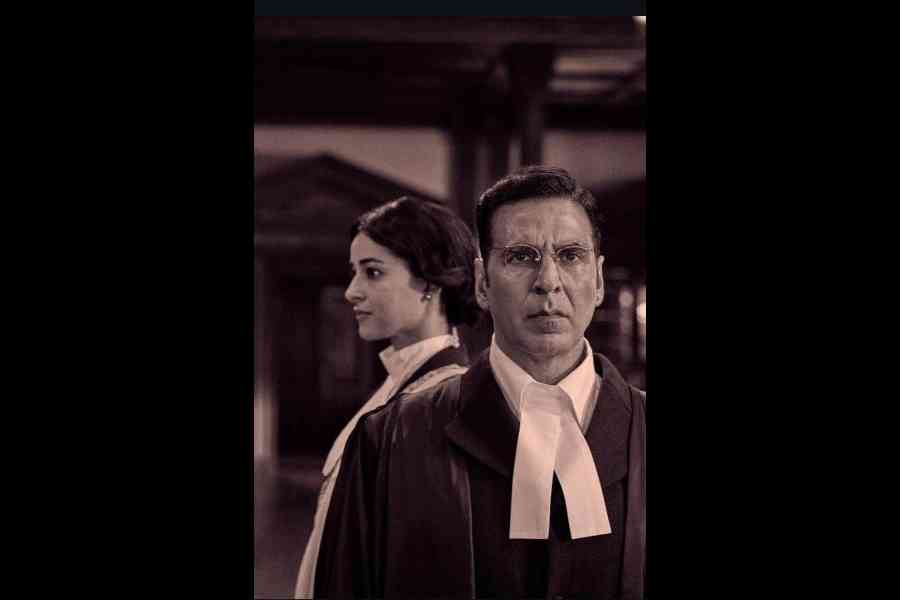As is the case with most Akshay Kumar films in which he plays a real-life character — frankly, at this point, is there any other kind of Akshay Kumar film, apart from the odd comedy here and there? — Kesari: Chapter 2 cannot escape the trademark saviour complex that its leading man comes with. But unlike some of Kumar’s recent outings in this sub-genre of sorts, what acts as a ‘saviour’ here, however, is that despite a lot of theatrics on display, Kesari 2 is a largely well-made film.
The second film in the Kesari franchise — which has no bearing on the first, a 2019 outing in which Akshay played Havildar Ishar Singh, the man at the forefront of the Battle of Saragarhi who almost single-handedly took on a regiment of the British — the focus lies on the Jallianwala Bagh massacre and its aftermath. Kesari: Chapter 2 bills itself as ‘the untold story’ of the genocide that perhaps remains the darkest chapter in India’s colonial history. The first few minutes of Kesari 2, directed by Karan Singh Tyagi and jointly produced by Karan Johar and Akshay Kumar, hit the viewer hard. Despite having watched the massacre that killed thousands of innocents in Amritsar on the Baisakhi day of 1919, dramatised several times on screens big and small, there is no escaping the horror that engulfs you as a viewer as the British troops, under the orders of General Reginald Dyer, fired indiscriminately at men, women and children until “the bullets ran out”. The official figure was put at 1,650, but the body count was several thousands more.
It was on that day — Kesari 2’s mile-long disclaimer says it is “inspired by true events, but is a work of pure fiction” — C. Sankaran Nair (played by Akshay), a loyal ally of the British in India, was being knighted. Introduced as an adept personality — “Kalaripayattu se Kathakali, kalam se lekar kanoon tak, sab mein ustad” — Nair’s change of heart is catalysed by a young lawyer (Ananya Panday plays Dilreet Gill, improving her range with every film), who comes to him with several theories surrounding the Jallianwala Bagh incident that hint at it being pre-meditated. It is a call to conscience for Nair who then decides to take on his British bosses and beat them at their own game.
Largely playing out as a courtroom drama, Kesari: Chapter 2 has enough clap-worthy moments to let Akshay shine, backed by dialogues — “We are suing the crown for genocide” being one of them, as is that scene with Dyer in the washroom in which Sankaran steals a glance at the man’s you- know-what and lets out a chuckle with: “The empire is shrinking” — that made many in the audience I was watching the film with erupt.
Sharp and erudite, Nair is well matched in court by Neville McKinley, the man defending the British, played by brutish street-smartness by R. Madhavan. Akshay has the author-backed role and does justice to it, but it is Maddy (McKinley’s status in history is well documented) who steals the show in many scenes. The thrust and parry between the two is not only engaging, but also helps one ignore some of the ridiculous accents and the perpetually loud grating score, though after a point, Kesari: Chapter 2 makes it difficult to discern fact from fiction.
But what isn’t up for debate is the fact that many innocents (branded as ‘terrorists’ by the British as a cover-up) were mercilessly butchered that day. As the end credits roll and the names come up, you can’t help but feel a lump in the throat. Ultimately, it is the truth that holds Kesari: Chapter 2 in good stead; the optics that come with being a commercial enterprise are optional.










